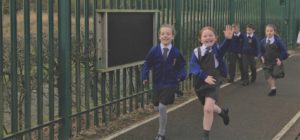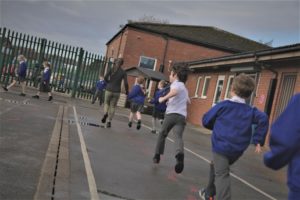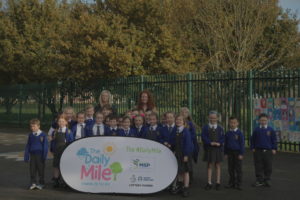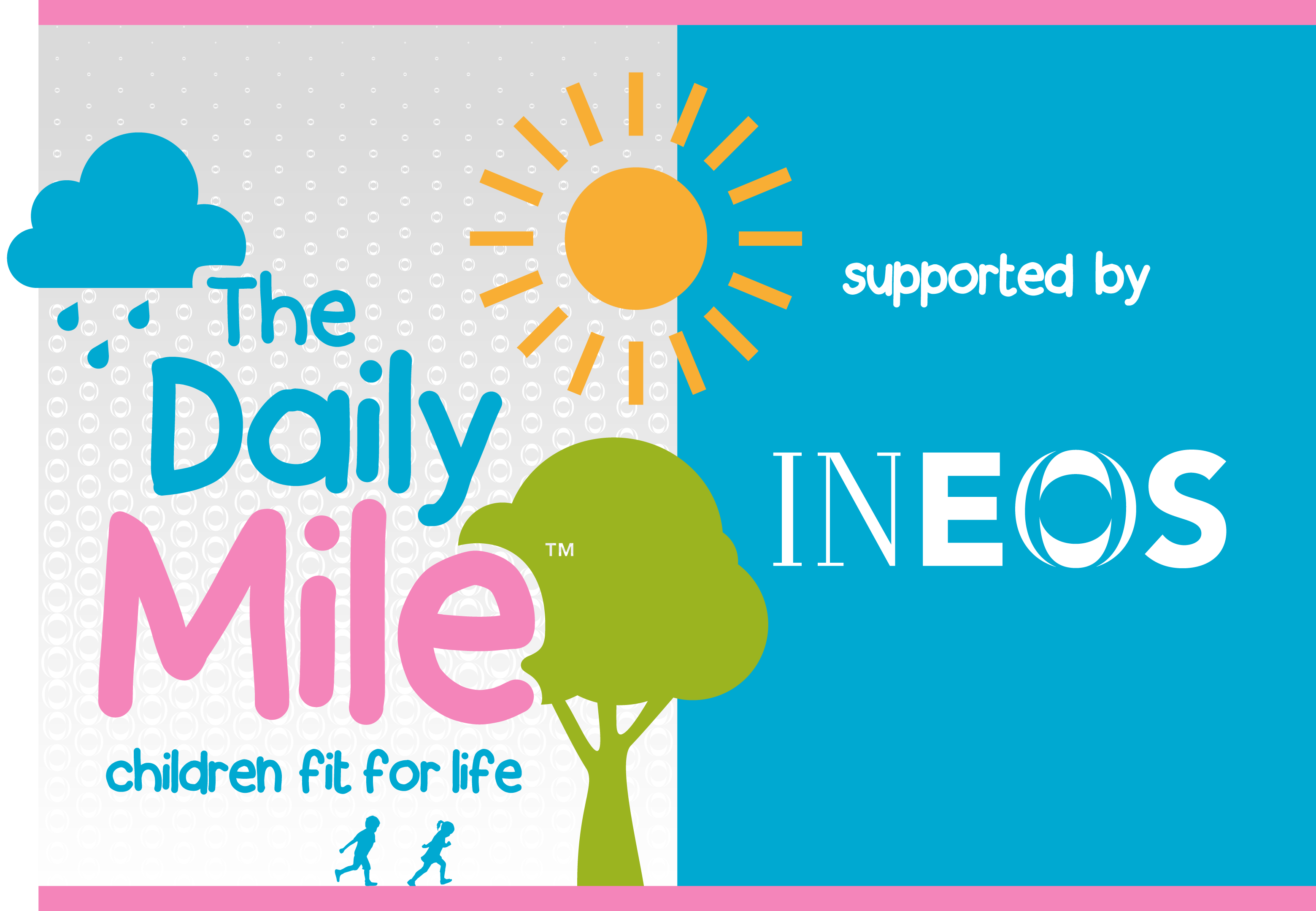
Fact File
Where we’re based: Merseyside, England
Roll: 235
Our Daily Mile Story
Mrs Fleetwood-Redmond is the Head of St Mary’s Junior School and tells us about their experience of The Daily Mile.
We have been doing The Daily Mile for around 3 years! I went to a St Helens PE network meeting and saw Elaine Wyllie MBE speak briefly about the impact and simplicity of The Daily Mile. The following day, we gave it ago and we haven’t looked back since then!
Initially, when we started The Daily Mile we just ran around any available space outside for example the edge of the playground or the field. That’s just one of the unique and wonderful things about The Daily Mile, there’s no initial cost or set up required. However, overtime as we have seen the impact on our children, we decided to invest some of our Sports Premium Funding in creating a running track. This provides us with a dedicated space which enables more than one class at a time to participate in The Daily Mile.
I think like most schools when you launch a new initiative you experience some barriers. As staff, we worried about the impact on an already busy timetable. However, the flexibility of The Daily Mile and when it takes place, combats any real issues. The Daily Mile can be done in the middle of a lesson when behaviour and concentration is lacking, and ensures that once the children return to the classroom they are ready to continue to learn.

The Daily Mile has had a huge impact for us as a school. The fitness, energy levels and stamina of our children have improved significantly. Last Summer, we held our first ever long distance fun run, which really showed the improvement on how far our children can now run over a sustained distance. It was wonderful to see the impact and celebrate together as a school family how far we have come on our Daily Mile journey.
Our children have become more aware of their own health and fitness, and are learning to take responsibility of this from a young age. We have seen an improvement of gross and fine motor skills, balance and we can even see a particular benefit to children who suffer from asthma.
It’s FUN!!! As a school family, it allows us time to go outside, chat and socialise in a relaxed environment. The children particularly enjoy The Daily Mile in the RAIN! Being outdoor allows our children to have feelings through connecting with the seasons and weather that they may not usually enjoy within the confines of the school day. Running in the rain, wind and hail has significantly improved our children’s resilience and determination!
The Daily Mile raises moral, confidence and self-esteem. In particular, we have seen a significant impact on the children who may usually need additional encouragement and support to participate in PE sessions. This is because there is no sense of failure, everyone succeeds in The Daily Mile because it’s not a race.
We have also received positive feedback from parents and family members who have said they have seen an impact on their children’s sleeping and eating habits, as well as improved physical stamina in activities they participate in outside of school.
One of my favourite things about The Daily Mile is how it breaks down barriers and is inclusive. It requires no kit, specialist equipment, money, transport or resources yet delivers a huge impact. My advice would be don’t delay…just start today! As a school like us you will never look back.

Quotes from pupils and staff
“The easiest strategy to implement, with a wealth of benefits for the whole school family!”
–Mrs Katie Fleetwood-Redmond Head of School
“I feel more fit and healthy! Doing The Daily Mile gives me confidence to go out and achieve in other sports”
-Y4 pupil
“The Daily Mile is just part of our everyday school life, we love doing The Daily Mile as a school family!”
-Y6 pupil
“Since starting The Daily Mile, I have seen a huge impact on my classes behaviour and concentration. When there is a dip in the day and the children are getting restless, we go out and complete The Daily Mile. When we return to class after their 15 minute run time, they really settle and are ready to work again”
-Miss Amy McCormack Y3 Teacher
“We have quite a lot of children with sensory needs and they have sensory diets which The Daily Mile caters for. Children with sensory diets and needing that sensory movement break are allowed to complete this in an inclusive environment. The impact for this group of children has been incredible.”
-Mrs Nicola Follin KS2 Lead and SENCO









